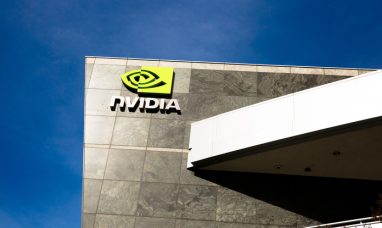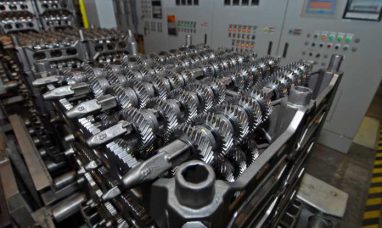Nvidia Corp. (NASDAQ:NVDA) has seen its market value plummet by $900 billion since its record high in June, despite continued strong investments in artificial intelligence. This dramatic selloff may seem to signal a cooling in AI spending, but the underlying trends tell a different story, as major tech giants continue to pour billions into AI infrastructure.
AI Spending Remains Robust Among Tech Giants
Despite Nvidia’s market downturn, companies like Microsoft Corp. (NASDAQ:MSFT), Amazon.com Inc. (NASDAQ:AMZN), Alphabet Inc. (NASDAQ:GOOG), and Meta Platforms Inc. (NASDAQ:META) remain committed to their AI investment strategies. These four tech giants, which account for over 40% of Nvidia’s revenue, have all reaffirmed their plans to invest billions into AI infrastructure, signaling a continued belief in the long-term value of AI technologies.
In addition, Super Micro Computer Inc. (NASDAQ:SMCI), a key player in the production of data center servers used in AI applications, recently projected sales of up to $30 billion over the next year, far exceeding analyst expectations. Despite these promising developments, Nvidia’s shares have dropped 25% in less than two months, reflecting a broader market nervousness.
Market Jitters and Economic Uncertainty
The sharp decline in Nvidia’s stock can be attributed in part to broader economic concerns. Investors have been rotating out of high-priced technology stocks in favor of small-cap stocks, value plays, utilities, and real estate companies. The shift was further fueled by a weaker-than-expected jobs report, which heightened fears of a potential economic slowdown in the United States.
According to Rhys Williams, chief strategist at Wayve Capital Management LLC, the market’s reaction isn’t a reflection of AI investment cooling, but rather of heightened nervousness among investors. “Nobody reduced numbers and said things are not working with AI or we’re taking a pause on AI,” Williams explained. However, uncertainty about the macroeconomic backdrop is adding extra pressure on Nvidia and other tech stocks, leading to a more volatile market environment.
Challenges Ahead for AI Chipmakers
Nvidia and other AI chipmakers face additional challenges beyond market volatility. For instance, during the recent earnings season, several Big Tech companies failed to convince investors that their AI spending is translating into immediate sales and profits. As Srini Pajjuri, managing director and senior research analyst at Raymond James, pointed out, “We haven’t yet seen a way to monetize AI, so the return on that spending is unclear. The question is, how long can this continue?”
Adding to Nvidia’s woes, the company has reportedly hit engineering snags in the development of two new advanced chips. Moreover, there is growing concern among investors about the potential for increased competition in the AI chip market. Major clients like Alphabet and Microsoft are reportedly developing their own AI chips, which could eventually erode Nvidia’s market share.
Long-Term Outlook for Nvidia and AI Investment
Despite these challenges, Nvidia’s long-term prospects in AI investment remain strong. The recent selloff, while significant, has brought Nvidia’s valuation down to more attractive levels for long-term investors. After trading at about 44 times forward earnings in mid-June, Nvidia is now valued at approximately 30 times forward earnings, closer to the Nasdaq 100’s average.
Moreover, the demand for AI chips remains solid, with companies like Advanced Micro Devices Inc. (NASDAQ:AMD) reporting increased revenue forecasts due to heightened demand for AI accelerators. While Nvidia’s recent market performance may suggest a short-term correction, the fundamentals of the AI industry and the company’s pivotal role in it suggest that the long-term outlook remains positive.
In conclusion, while Nvidia’s $900 billion value dip may cause concern among investors, the continued AI investment from major tech players and the company’s leading position in the market suggest that the future of AI remains bright. As Ken Mahoney, president and CEO of Mahoney Asset Management, summarized, “Nothing has changed fundamentally with these companies other than they probably got a little bit ahead of themselves.”
Featured Image: Freepik














